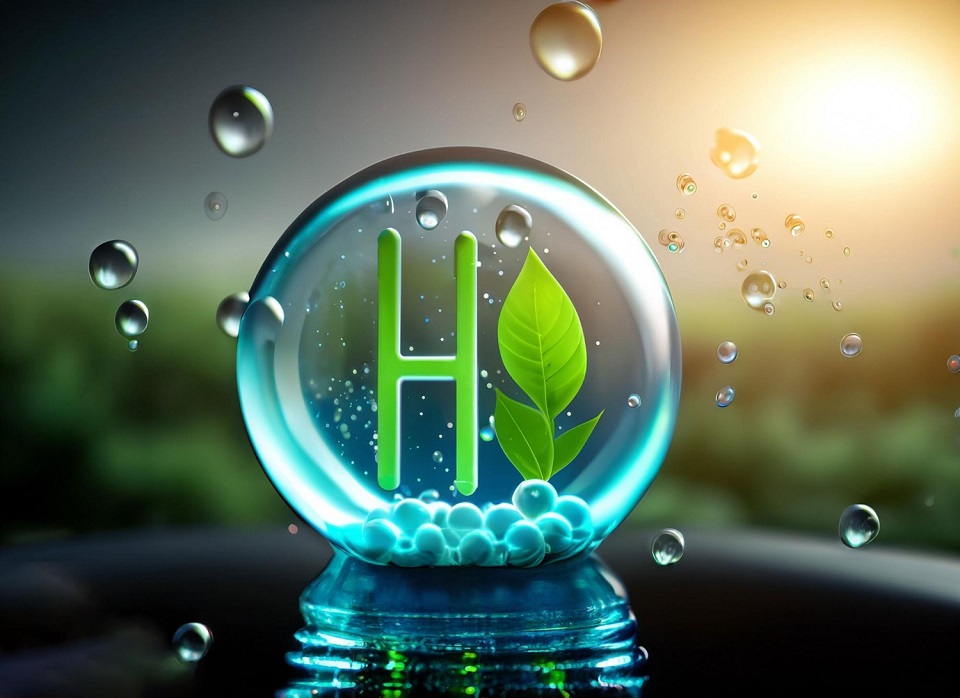Hydrogen Fuel Cells: A Glimpse into the Future of Clean Energy
In response to growing environmental worries about conventional fossil fuels, scientists and researchers worldwide are looking at a variety of renewable energy sources. Among them, hydrogen fuel cells have come to light as a viable technology that has the potential to transform the energy industry and lessen our dependency on fossil fuels.
A hydrogen fuel cell is an electrochemical device that uses two redox processes to transform the chemical energy of hydrogen and oxygen into electrical energy. This way of generating power is suitable for a sustainable future because it is clean and effective, and only leaves water as a byproduct.
How Hydrogen Fuel Cells Work
An easy way to explain how a hydrogen fuel cell works is to let hydrogen react with oxygen to create energy, heat, and water. Three processes work together to do this: oxygen reduction at the cathode (negative electrode), hydrogen oxidation at the anode (positive electrode), and ion transport across the electrolyte that separates the two electrodes.
The capacity of hydrogen fuel cells to produce power without burning, which prevents the release of dangerous greenhouse gases, is their main selling point. A fuel cell can also keep producing electricity as long as there is a supply of oxygen and hydrogen, outpacing the constraints of traditional batteries.
Types of Hydrogen Fuel Cells
Proton Exchange Membrane Fuel Cells (PEMFCs), Alkaline Fuel Cells (AFCs), Solid Oxide Fuel Cells (SOFCs), and Molten Carbonate Fuel Cells are some of the different kinds of hydrogen fuel cells that have been produced (MCFCs). The operating temperatures, the type of electrolyte utilized, and the applications for which they are employed vary between these types. PEMFCs, for instance, are frequently used in cars and portable power systems and may function at relatively low temperatures. The high-temperature operation of SOFCs and MCFCs, in contrast, makes them appropriate for stationary power production applications.
Applications of Hydrogen Fuel Cells
Applications for hydrogen fuel cells are numerous and cross numerous industries. They are being used more frequently to power automobiles, buses, and even trains. Several automakers, including Toyota, Honda, and Hyundai, have already introduced hydrogen fuel cell vehicles.
In addition to being utilized for transportation, stationary power generation with hydrogen fuel cells produces electricity for use in structures, residences, and industrial operations. Additionally, they serve as backup power sources for crucial operations like hospitals and data centers. They are a good solution for mobile devices and remote areas because of their capacity to generate clean, dependable electricity.
Challenges and Potential Solutions
Although hydrogen fuel cells have a lot of potential, they confront a number of obstacles in their broad deployment. It is necessary to lower the existing high production costs for fuel cells, which are mostly brought on by the use of pricy components like platinum. Another major obstacle is the absence of a complete infrastructure for distributing and storing hydrogen fuel.
However, these difficulties are being lessened by current studies and technological developments. There are initiatives to create fuel cells with less expensive components. At the same time, considerable investments are being made worldwide to build a strong hydrogen infrastructure.
Looking Ahead: The Future of Hydrogen Fuel Cells
Hydrogen fuel cells have a promising and transformational future. They are positioned to be a key player in the shift to clean, renewable energy systems, helping the world achieve its objective of a low-carbon economy.
Fuel cell electric vehicles (FCEVs), which offer an eco-friendly substitute for traditional cars, may soon be a familiar sight in the automotive sector. Hydrogen fuel cells could contribute to grid balancing in the area of energy production by storing excess electricity produced by renewable sources and supplying energy during moments of high demand.
A fully sustainable energy loop might also be produced by combining fuel cell technology with renewable energy sources. Water might be electrolyzed using solar or wind energy to create hydrogen for fuel cells, which then produce electricity.
In conclusion, hydrogen fuel cells are an effective instrument in the development of new clean energy technologies. Even though there are still problems, the continued study, development, and application of this technology represent a significant step towards a low-carbon, sustainable future. Hydrogen fuel cells may be the game-changer in our transition to a more environmentally friendly future as we continue to research and advance this technology.


Leave feedback about this